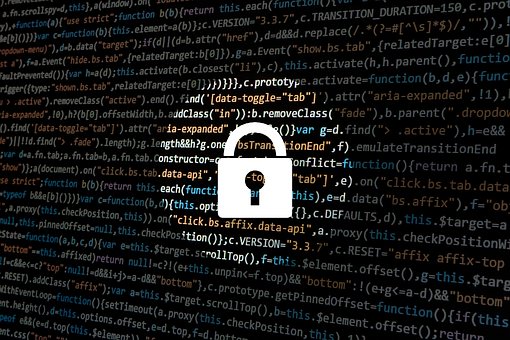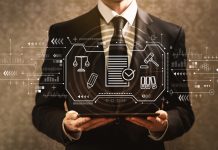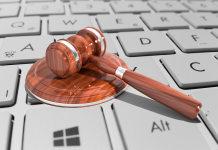This Article is written by Anshika Gubrele, BA LLB second-year student of Bharati Vidyapeeth New Law College, Pune. She discusses on how surveillance in the modern world results in the hegemony of government and affects individual privacy. Further, the author has also discussed different surveillance systems across the world with an emphasis on the Indian surveillance system and the concept of privacy in India.
Introduction
As we all are living in the era of Globalisation, dramatic technological progress has brought us many conveniences and advantages that lead to an easier and more comfortable life. The advancement in technology gave rise to several inventions and developments in different fields.
The development of surveillance technology has been one of those new creations in this advanced technology world.
What do you mean by Surveillance?
The word Surveillance was derived from a French phrase which means “watching over”. Surveillance can be basically understood as close observation of someone or something in order to gather information or data. The main objective of surveillance is to monitor the activities of an individual and can be used for a variety of other purposes as well.
“Under observations, we act less free, which means we effectively are less free”—Edward Snowden
Why is surveillance used?
Surveillance is used for several purposes such as health agencies use surveillance to prevent the spread of infectious diseases, law enforcement agencies use surveillance to monitor and prevent crime while the government agencies use surveillance for national security.
Some of the commonly used surveillance technologies
- Automatic License Plate Readers – The ALPs are the specialised camera systems generally mounted over the streetlight, poles, police cars to capture images of license plates of still and moving vehicles.
- Closed Circuit Television Cameras – CCTV cameras help in monitoring public or property by producing images and recordings in order to reduce crime and other illegal activities.
- Biometric Surveillance technology – Biometrics are methods which use certain features such as facial recognition, fingerprints to verify or authenticate an individual’s identity.
- Hacking software and hardware – The technology allows law enforcement agencies to access a person’s computer and other electronic devices including laptops, cell phones or personal accounts of that person. The goal is to have a check over citizens of the country.
- Social Media Monitoring Software – It collects data and necessary information from a person’s social media account which includes all the social media platforms such as Twitter, Facebook, Instagram.
How is modern surveillance technology creating hegemony?
Many government agencies across the world have the authority to carry out surveillance in their respective countries. Though the motive behind this is to combat terrorism and other illegal activities in order to maintain peace and national security, still the practice of surveillance has been often criticised on the grounds of breach of privacy and freedom of expression.
If we come to know that we are being watched at every single minute it’s very obvious that it will affect our privacy and we are less likely to express our personal opinions in such case. As the government has been kept on collecting all source of information including highly personal information of millions of people without their approval, is itself a breach of privacy. Here it can be concluded that the government is being dominant on its citizens.
Case laws
Let’s understand how and when surveillance invades privacy through these cases –
- Katz v. the United States – Here the petitioner was accused of passing wagering information from Los Angeles to Boston and Miami and by using public phone booths. In order to collect evidence, the FBI placed tape recorders on those public phone booths. Katz argued that the recording was a violation of his privacy. The Court of Law ruled in his favour as his conversation must be protected under the fourth amendment of U.S Constitution.
- R.M Malkani v. State of Maharashtra – In this case, the tape recording of the appellant was the only evidence against him which clearly proved him guilty of bribery. He further claimed that mere a recording is not admissible in court under provisions of Indian Evidence Act. Later, the Supreme Court of India ruled that though the recording was done without the consent of the person still it was relevant to the court.
Though in both cases there is a breach of the right to privacy, still the laws of a particular country govern whether such surveillance was illegal or not.
In the U.S.A, the Rule of the Exclusionary has its place in the fourth amendment of the American constitution which says that evidence against a person is inadmissible in court if obtained through an unlawful search of that person’s property. Thus the same rule has been applied in case of Katz vs. the United States.
Contrary to this, India follows the Rule of relevance which says that even though the evidence has been obtained unlawfully, the relevance of it is the main principle of making it admissible in the court of law.
Surveillance systems across the world
1. China
China has the largest monitoring system in the world. It has around 170 million CCTV cameras across the country. The reason behind this system is to ensure public safety and to prevent crime. Through the surveillance system, it becomes easier for police to solve criminal cases with material evidence.
China is also providing grade points to its citizens and also sets a benchmark for the scores. There is a carrot and stick policy for citizens. If a person is involved in illegal activities like theft, gambling etc that person will be punished for scoring less and a person with a good record will be rewarded.
Disease surveillance in China
Disease surveillance is an approach of data collection of specific infectious diseases for implementation and evaluation of public health programmes. It will help in knowing the emerging health issues in the country. The data thus collected will also help in the formulation of health policies in order to prevent and cure diseases.
2. USA
In the USA the surveillance system is very efficient and also keeps an eye on every individual. Citizens have shown a positive response towards this system because if there is a conflict between two persons, through surveillance police officers, are able to rewind the circumstances of the case and also initiate fair legal proceedings against the wrongdoer, and thus it helps in providing evidence against the guilty and further provide justice to the innocent.
NSA Surveillance
The National Surveillance Agency, a national level intelligence agency is part of the US defence department. The agency has been conducting unlawful surveillance on Americans and obtaining extremely personal information by tapping phone calls and monitoring computer resources. This unconstitutional practice has been severely criticised by native citizens as it directly hampers their privacy.
3. United Kingdom
The surveillance programmes in Britain are directly contravening human rights.
UK mass surveillance has been recently ruled unlawful by the European Court of Human Rights (ECHR). The court ruled that there was terrible mismanagement in the way the data was accumulated and therefore is a breach of an individual’s right to privacy.
4. India
Being a developing country, India has gone through several changes in the past regarding its policy on information technology and still a lot more changes are needed to be done. Revelations by Edward Snowden regarding mass surveillance prompted Indians to introduce surveillance as a concept in India. There is not much information provided for the technology and infrastructure that is being used to carry out the surveillance. Although, it is just the beginning of this system in the country, there are certain questions that arise in the mind of each one such as – Whether the current Indian the legal framework contains provisions related to surveillance and is the privacy of the individual is secured?

Surveillance and Privacy in India
Recently Ministry of Home Affairs has authorized 10 federal government agencies tointercept and monitor information from any computer and decrypt any the information generated, transmitted, received and stored in any computer source. This has been seen as an extreme measure to deny people their right to privacy. The agencies include Delhi police, Central Bureau of Investigation etc which lacks a statutory basis. It has been also argued that these cannot be termed strictly as organizations and also increases the scope of arbitrariness while exercising powers. It is clearly evident that this desire of the government is unconstitutional and is a breach of telephone tapping guidelines, the right to privacy judgment and further, keeping computers under surveillance hampers the privacy and independence of people and also infringes fundamental rights to privacy guaranteed by the Indian Constitution under Article 21.
The notion of Privacy in India
Privacy simply means to be left alone to oneself and is an inherent right of an individual. The right to privacy is an essential right in India and has been put forth implicitly under article 21 of the Indian Constitution. Right to privacy was recognised as a fundamental right after the landmark judgment of KS Puttaswamy vs Union of India.
The concept of the right to privacy evolved from the case Kharak Singh vs State of Uttar Pradesh. In this case, the petitioner was tortured by the police who used to made domiciliary visits to his house at night. Under regulation 236(b) of the UP regulation, such kind of visits was permitted but the court of law later struck down the regulation as unconstitutional as it was clearly an interference with his right to privacy.
The main objective behind the establishment of the right to privacy is to protect the personal dignity of individuals and protect the rights of them from being contravened or infringed by others.
Article 21 of the Indian Constitution
Article 21 can be read as
“No person shall be deprived of his life or personal liberty except according to a procedure established by law.”
Thus it simply means every person by virtue of being human has the right to life and personal liberty which he/she shall not be deprived of. Any person violating such right will be punishable by law.
Thus article 21 safeguards two most important rights – Right to life and personal liberty.
Surveillance laws in India
The governmental bodies of India though possess indirect powers to conduct surveillance through many acts and legislation passed by Parliament still there is a lack of proper legal framework or laws specifically dealing with Surveillance.
- Section 69 of Information Technology Amendment Act, 2008 – Under this act, the government is authorised to intercept, decrypt or monitor any computer resource in order to maintain public order and security.
- Right to privacy bill, 2011 – The bill clearly defined the notion of the right to privacy and mentioned the circumstances under which surveillance can be conducted. It also introduced the penalties that shall be imposed if information obtained through surveillance is misused. Under the bill, the surveillance can be conducted only by the prior recommendation and approval of the Home Secretary, Ministry of Home Affairs and Government of India.
National Health Stack bill (NHS)
The Niti Aayog released the proposal of creation of national health stack, a centralised health record for individuals. The stack will store the personal health records and service provider records. This will basically bring down the medical expenses, provide easy access to health records, avoid duplication of registries and promote wellness in the country.
The four key components of the National Health Stack are
- National health electronic registries, Coverage,
- Platform,
- a federated personal health records framework,
- national health analytics platform and other horizontal components.
Unique IDs will be created and will be given to registrants to access records after the completion of their KYC requirements. The use of API’s and the creation of such a digitalised medical record raised the issue of privacy. The leak of personal information of a person suffering from any disease with disgrace associated with it will lead to discriminatory behaviour against that person.
On this, the NHS has stated that it will ensure the privacy of that person and protect his/her data from any abuse.
Conclusion
To sum up, all these facts, every coin has two sides positive as well as negative. On one hand, if surveillance is one of the most effective ways to combat terrorism, it should not come at the cost of privacy of the individual. Every individual has his own life and privacy, he has his own dignity but by using such surveillance on citizens the government is infringing their privacy as well as gaining security by giving up their civil liberties. Thus, it is all about suppressing an individual’s ideas, thoughts and freedom of speech and controlling all his words and actions and creating hegemony.
 Serato DJ Crack 2025Serato DJ PRO Crack
Serato DJ Crack 2025Serato DJ PRO Crack










 Allow notifications
Allow notifications


